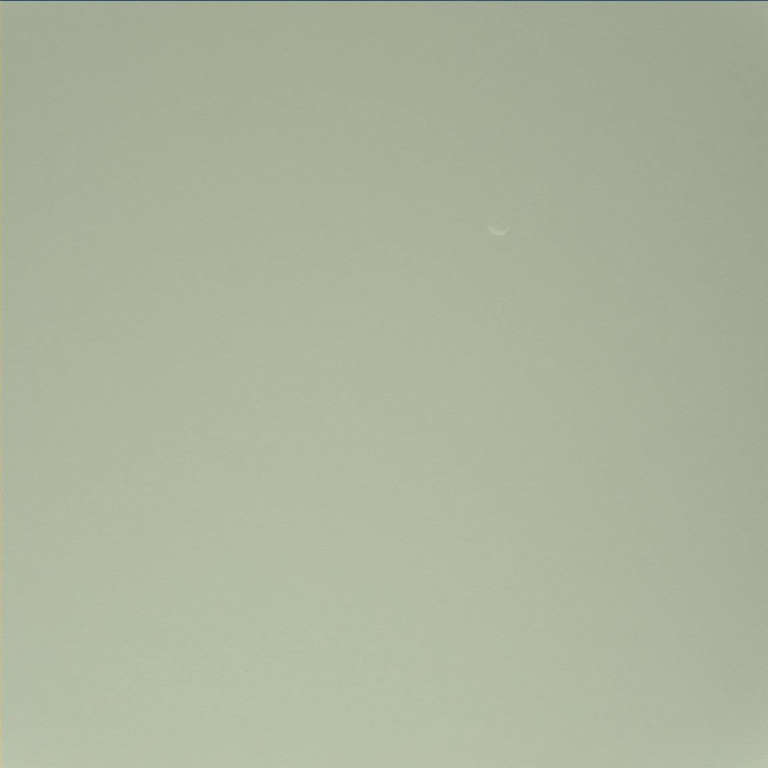Emily Lakdawalla • Sep 26, 2012
An alien moon, photographed from the surface of an alien world
Well, this is a first, as far as I know. And unexpectedly stirring. The image below looks blank at first, a solid greenish gray. But let it fill your screen, and look in the upper right quadrant, and you'll see a bright smudge. At first, the smudge seems familiar: it's a crescent Moon, not quite lost in the bright western sky, just after sunset. But look closer at the shape of the Moon and you'll see it's all wrong: its limb isn't hemispherical, it's lumpy; and the terminator (the day-night boundary crossing the Moon's disk) is even lumpier, turning the crescent into an apostrophe.
This isn't our sky, and it isn't our Moon. It's the Martian sky, and that moon is Phobos, spied in the Martian dusk by Curiosity's Mastcam-100.*

Here's a zoomed-in view. You can't do much to the contrast of this image without bringing out JPEG artifacts; I am hopeful that the press briefing scheduled for Thursday at 11:00 PDT / 18:00 UTC will include an official release of a less-compressed version of the image. But the lumpy shape of Phobos is quite clear. The shape even looks familiar; you could talk me into the notion that north is to the left and that the flat bit of the limb to the right is the great gouge of Stickney crater. But I'm not at all sure of the geometry here, so don't quote me on that! It's tempting to think that a little divot near the terminator on the left side is a crater, but I don't trust such small details among the JPEG artifacts; I await an official release to comment on whether anything other than the basic lumpiness of the limb is visible here.

Think about this for a moment -- we're seeing a different moon from the surface of a different world. And this moon is weird not just for its lumpiness, but also because it orbits so close to Mars that it outpaces Mars' rotation. That means it rises in the west and sets in the east, more than twice every Martian day. Completely alien. And awesome, in the literal sense of the world.
I would not have noticed this image were it not for the ever-watchful members of unmannedspaceflight.com (user "fredk" this time). I'm so grateful for that community. We're running a fundraiser right now to support our hosting costs -- if you, too, value the beautiful images and constant attentiveness of this community of volunteers and amateurs, please consider making a donation to support it.
* NOTE: I originally had the wrong time of day for this image, but as a commenter pointed out, it was taken at 13:27 UT on September 21, 2012, which corresponds to 17:27 at Curiosity's location on Mars. Sunset occurred at 15:21 that day. --ESL
Support our core enterprises
Your support powers our mission to explore worlds, find life, and defend Earth. You make all the difference when you make a gift. Give today!
Donate

 Explore Worlds
Explore Worlds Find Life
Find Life Defend Earth
Defend Earth

